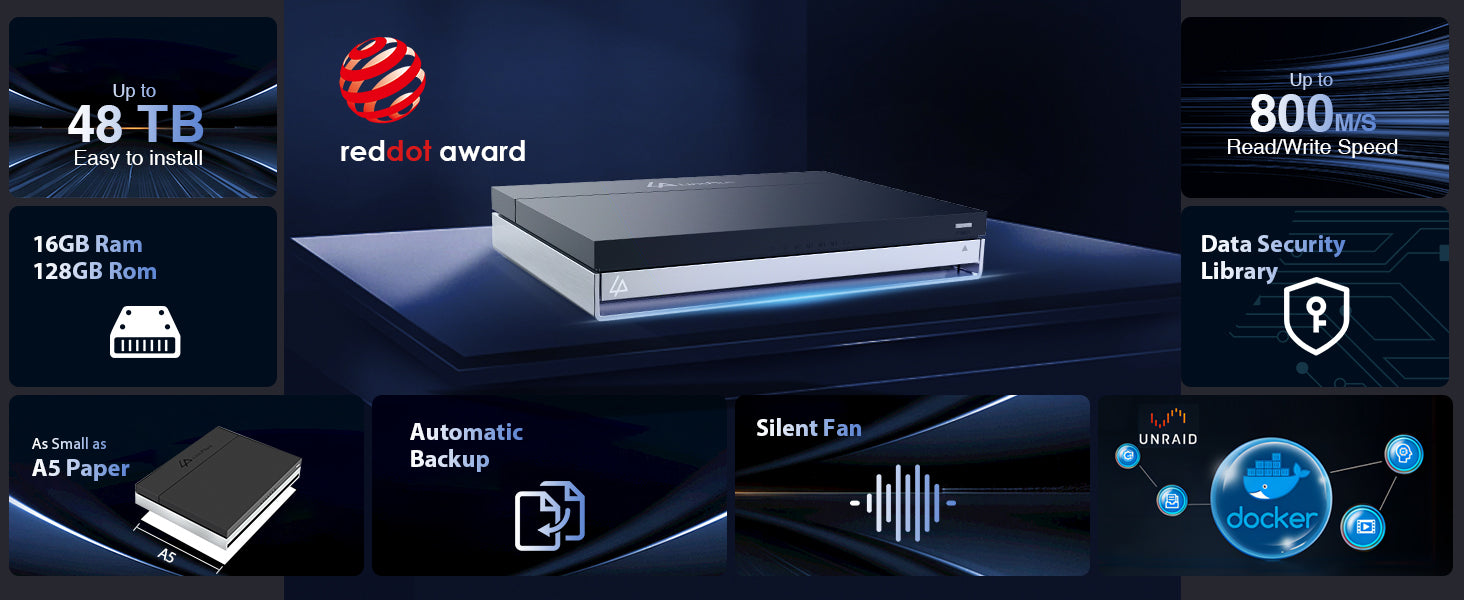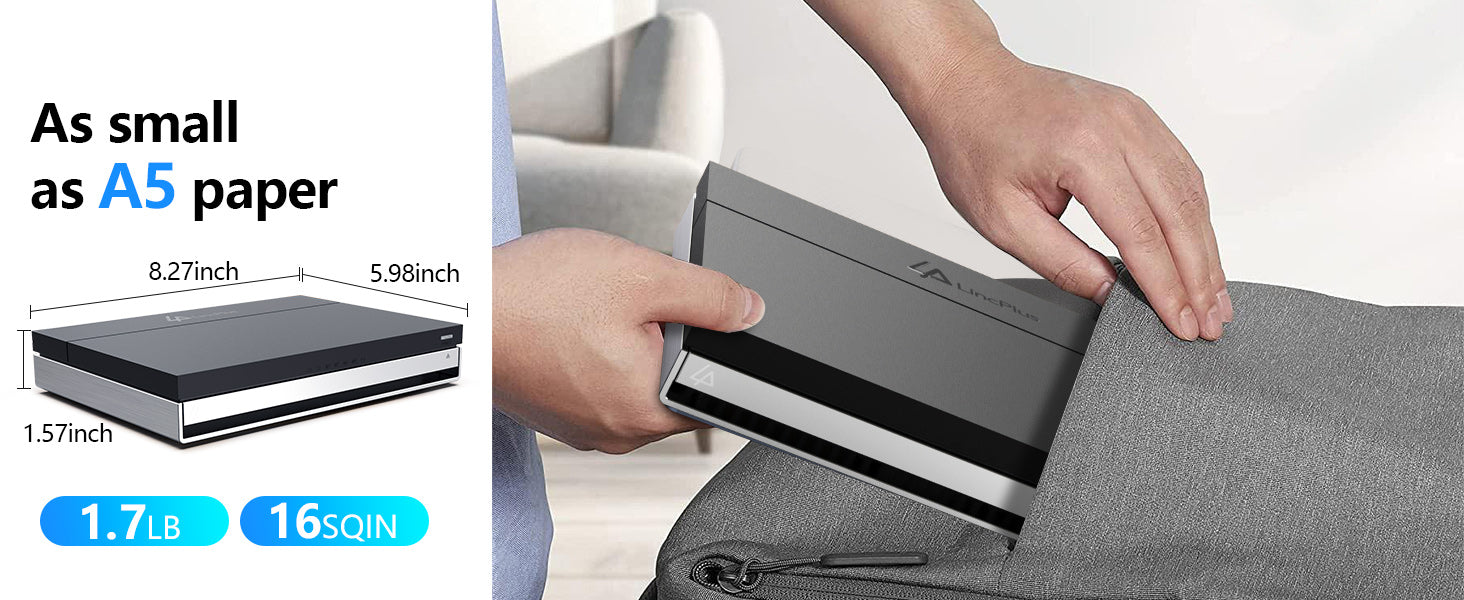Introduction
Network Attached Storage (NAS) has become an indispensable tool in modern data management, providing centralized storage that is easily accessible by multiple devices over a network. Traditionally, NAS systems have relied on Hard Disk Drives (HDDs) for storage, offering substantial capacity at a lower cost. However, the rise of Solid State Drives (SSDs) has revolutionized this landscape. SSD NAS, which uses SSDs instead of HDDs, brings significant improvements in speed, reliability, and energy efficiency. This article delves into what SSD NAS is, how it differs from traditional NAS, the advantages it offers, and the best SSD NAS options available today.
What is SSD NAS and Differences from Traditional NAS
Definition of SSD NAS
SSD NAS refers to a network-attached storage device that employs Solid State Drives for data storage. SSDs use flash memory to store data, which allows for much faster access times and greater reliability compared to HDDs. Unlike HDDs, which use spinning disks to read and write data, SSDs have no moving parts, resulting in faster performance and enhanced durability.
Differences from Traditional NAS
- Data Transfer Rates: Both NVMe and SATA SSDs offer significantly higher data transfer rates than traditional HDDs. NVMe SSDs, leveraging the PCIe interface, provide even faster speeds compared to SATA SSDs.
- Latency: SSDs, in general, provide lower latency than HDDs due to the lack of mechanical parts. NVMe SSDs further reduce latency with their efficient protocol designed for flash storage.
- Power Consumption and Heat Generation: SSDs consume less power and generate less heat compared to HDDs, with NVMe SSDs being slightly more efficient due to advanced heat management.
- Form Factor and Space Efficiency: SSDs, including both SATA and NVMe, come in more compact and versatile form factors (like M.2 and 2.5-inch), allowing for better space utilization compared to larger HDDs.
- Reliability and Durability: The absence of moving parts in SSDs makes them more reliable and durable than HDDs, reducing the risk of mechanical failure and data loss.
Advantages of SSD NAS
The practical benefits of M.2 NVMe NAS extend beyond raw performance metrics, offering significant improvements in user experience and operational efficiency. Here are the key advantages:
Performance: SSD NAS, whether using SATA or NVMe SSDs, offers faster boot times, quicker file transfers, and more efficient data handling. NVMe SSDs provide even higher read/write speeds for demanding applications.
Energy Efficiency: Both types of SSDs are more energy-efficient than HDDs, resulting in lower operational costs and a reduced environmental footprint. NVMe SSDs typically offer slight improvements in energy consumption and heat dissipation.
Noise and Heat Reduction: SSDs operate silently and generate less heat compared to HDDs, making them ideal for environments where quiet operation is essential.
Compact Form Factor: The versatile form factors of SSDs, including 2.5-inch and M.2, enable better use of space in NAS systems, accommodating more drives in a smaller footprint.
Advanced Use Cases: SSD NAS is ideal for high-performance applications such as virtualization, content creation, and database management, providing the necessary speed and reliability. NVMe SSDs further enhance performance for the most demanding tasks.
Best Choices for SSD NAS
When it comes to selecting the best SSD NAS, several options stand out for their performance, features, and overall value. Here, we explore three top choices: LincPlus LincStation N1, Asustor Flashstor 6, and QNAP TBS-464.
Summary Table Comparing SSD NAS Choices
|
Feature |
LincPlus LincStation N1 |
Asustor Flashstor 6 |
QNAP TBS-464 |
|
Key Features |
Compact design, efficient power consumption, high-speed data access |
High performance, multiple connectivity options, robust security features |
Compact form factor, NVMe SSD support, advanced data protection features |
|
Pros |
Affordable, easy to set up, energy-efficient |
Excellent speed, versatile connectivity, comprehensive software suite |
Superior performance with NVMe SSDs, space-saving design, rich feature set |
|
Cons |
basic feature set |
Higher price point |
Premium pricing |
|
Ideal Use Cases |
Home offices, small businesses, simple and cost-effective storage |
Small to medium-sized businesses, professional content creators, IT enthusiasts |
Power users, tech-savvy individuals, businesses with demanding storage needs |
- Key Features: The LincPlus LincStation N1 is a compact and energy-efficient SSD NAS designed for home and small office use. It supports multiple SSDs and offers high-speed data access, ensuring smooth performance for everyday tasks.
-
Pros:
- Affordable pricing makes it accessible for budget-conscious users.
- Easy to set up and manage, making it ideal for users without advanced technical skills.
- Energy-efficient, reducing operational costs.
-
Cons:
- Limited scalability may not be suitable for larger businesses with growing storage needs.
- Basic feature set compared to more advanced NAS solutions.
- Ideal Use Cases: The LincPlus LincStation N1 is perfect for home offices, small businesses, and individuals who need a straightforward, reliable, and cost-effective storage solution.
Asustor Flashstor 6
- Key Features: The Asustor Flashstor 6 offers high performance with its robust hardware and versatile connectivity options. It supports multiple SSDs and includes advanced security features to protect your data.
-
Pros:
- Exceptional speed and performance, making it suitable for demanding applications.
- Multiple connectivity options, including USB, Ethernet, and more.
- Comprehensive software suite for data management and security.
-
Cons:
- Higher price point compared to entry-level NAS solutions.
- Ideal Use Cases: The Asustor Flashstor 6 is well-suited for small to medium-sized businesses, professional content creators, and IT enthusiasts who require a powerful and versatile storage solution.
QNAP TBS-464
- Key Features: The QNAP TBS-464 is a compact NAS that supports NVMe SSDs, offering unparalleled performance and speed. It includes advanced data protection features and a rich set of software tools for various applications.
-
Pros:
- Superior performance with NVMe SSDs, providing ultra-fast data access and transfer speeds.
- Space-saving design, making it ideal for environments with limited space.
- Rich feature set, including virtualization support and comprehensive data protection.
-
Cons:
- Premium pricing reflects its advanced capabilities and high performance.
- Ideal Use Cases: The QNAP TBS-464 is perfect for power users, tech-savvy individuals, and businesses with demanding storage needs. Its advanced features make it ideal for environments that require high-speed data access and robust data protection.
Conclusion
SSD NAS offers a multitude of benefits over traditional NAS, including enhanced performance, reliability, and energy efficiency. The transition from HDDs to SSDs in NAS solutions marks a significant improvement in data storage technology, addressing the needs of modern applications that demand high-speed, reliable, and efficient storage solutions.
Among the top choices for SSD NAS, the LincPlus LincStation N1 stands out for its affordability and simplicity, making it ideal for home and small office use. The Asustor Flashstor 6, with its high performance and versatile connectivity options, caters to small to medium-sized businesses and professional users. The QNAP TBS-464, with its support for NVMe SSDs and advanced features, is perfect for power users and environments requiring top-notch performance and data protection.
Investing in an SSD NAS can significantly boost your data storage capabilities, ensuring fast, reliable, and efficient access to your critical data. Whether you are a home user, a small business, or a large enterprise, there is an SSD NAS solution tailored to meet your needs and enhance your overall data management strategy.




Hinterlasse einen Kommentar
Alle Kommentare werden vor der Veröffentlichung geprüft.
Diese Website ist durch hCaptcha geschützt und es gelten die allgemeinen Geschäftsbedingungen und Datenschutzbestimmungen von hCaptcha.